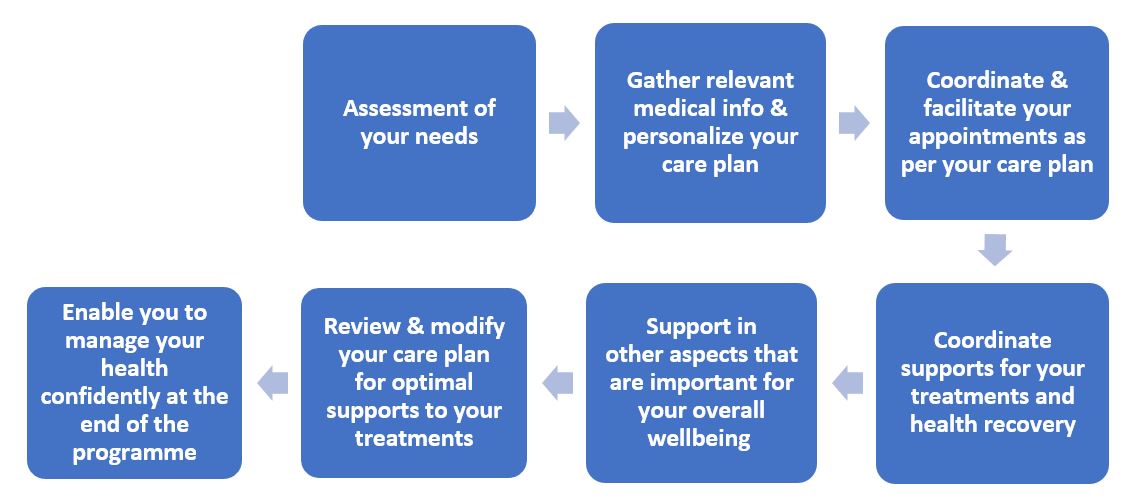Having access to Singapore’s world-class medical facilities and experts can be reassuring when you’ve just been diagnosed with a potentially life-threatening chronic illness like diabetes, cancer, heart disease or kidney disease. But it doesn’t take away the anxiety that comes with a new health issue.
Undergoing hospital treatments can naturally be intimidating and affect your physical and emotional well-being. And post-treatment, you’ll have to make many adjustments as you adapt to living with the disease, often not knowing what to expect or whether you’re on the right track. And because these diseases can have a long-lasting impact on your quality of life, they require close and constant monitoring as your condition evolves.
Trying to focus on your recovery becomes harder when there are countless things to handle. Coordinating your different healthcare appointments, finding the right care providers, planning special diets, starting a new exercise programme and staying on top of your finances all at once can be overwhelming, especially when your health isn’t at its peak and you’re feeling vulnerable.
The importance of good chronic illness management
Yet proper management of chronic illness post-treatment should not be neglected. The right care at the right time can significantly minimise your risk of a relapse, re-diagnosis or a new diagnosis while helping to improve your overall state of health. And with diseases that require life-long monitoring, it can give you greater confidence to go about your life as normally as possible. At times like this, you might wish you had a personal healthcare management concierge.
Introducing Singlife’s Patient Support Programme
Because Singlife understands that you and your family need all the help you can get during this fragile stage of your life, we’ve introduced a dedicated Patient Support Programme.
What is the Patient Support Programme? It’s an opt-in programme exclusively for Singlife Shield and Singlife Health Plus policyholders that helps with your healthcare management. Some of the diseases supported include diabetes mellitus, cancer, stroke, heart disease and kidney disease. The programme gives you and your family invaluable and holistic support, empowering you to take charge of your condition.
How does it work? Patients under the programme will be supported by a team of dedicated healthcare professionals who’ll design a personalised care plan based on your unique healthcare needs, in consultation with your attending doctors and other healthcare providers. The programme runs for up to 12 months depending on your need for support, and participation is entirely voluntary.
As you progress in your recovery journey , your care plan will be monitored, reviewed, and adjusted to ensure you receive optimal support for your treatments at the right time and in the right way that will promote your recovery and enhance your quality of life.
What do you get from the programme? Because everyone has unique needs at different stages of their recovery journey, there’s no ‘one-size-fits-all’ plan to help you stay healthy. Each plan is carefully customised and may include a combination or all of the following:
· Regular consultation where you can make clarification and get advice about treatments recommended by your own attending doctor
· Support to get necessary treatment
· Regular health monitoring
· Assistance to seek financial aid where necessary, for medicine and treatments not normally covered under your Singlife Shield policy, e.g. rehabilitation sessions for fall prevention or extra medication for a chronic illness such as diabetes mellitus
· Coaching and lifestyle assistance on diet, exercise, stress management and other basic health tips
Patient Support Programme journey

Never have to walk alone
Being on the Patient Support Programme is like having a dedicated partner by your side throughout your post-treatment recovery journey. It gives you peace of mind that there’s someone to turn to to help with managing your illness effectively, and it empowers you to take charge of your health. For chronic illness patients, there are few things as valuable as this as they take the road to recovery.

















